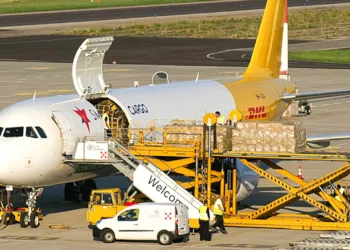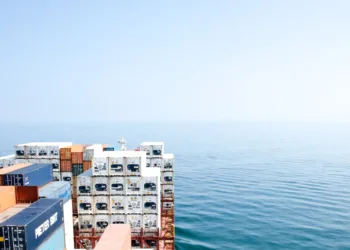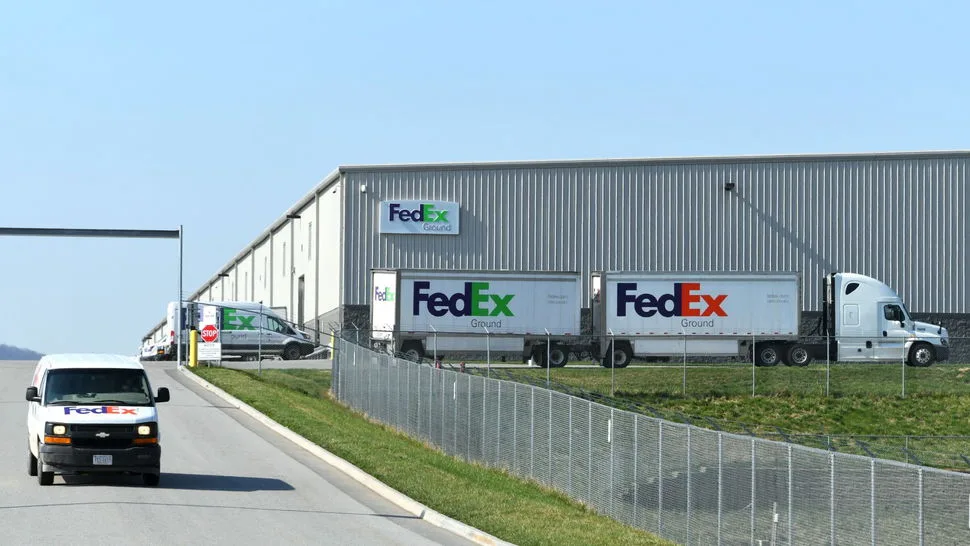Even as the trucking legal community looks for the possibility of the Supreme Court being asked to review a court decision that put Total Quality Logistics on the losing side of the issue of broker liability, there is another federal case on the same subject that already is on the nine justices’ formal requests for high court certiorari.
Legal filings heated up this week in the case of Shawn Montgomery vs. Caribe Transport II, a carrier. 3PL giant C.H. Robinson (NASDAQ: CHRW), which hired Caribe Transport, also is a defendant.
Montgomery was injured in December 2017 in an Illinois collision with a Caribe Transport truck. C.H. Robinson prevailed (separately from Caribe Transport) on two separate requests for summary judgement in late 2023 and early 2024, respectively, from the U.S. District Court for the Southern District of Illinois. The U.S. Court of Appeals for the Seventh Circuit affirmed the lower court in early January.
That led Montgomery to seek Supreme Court certiorari in a filing made last month. C.H. Robinson is backing Montgomery’s request for a Supreme Court review, even though it was victorious against that plaintiff in the lower courts.
CHRW backs its opponent
C.H. Robinson’s support of the certiorari request has similarities to that of TQL in the request for Supreme Court review by Katia Gauthier. She was the widow of a man killed in a collision with a truck hired by TQL.
TQL was victorious in Gauthier in a lower court and on appeal on the issue of whether the Federal Aviation Administration Authorization Act (F4A) would preempt a state tort action against the broker. Despite the win, TQL wanted the Supreme Court to weigh in on the broader issues of F4A interpretation, given that circuit courts’ decisions on the provision of F4A known as the safety exemption were not consistent.
Gauthier’s request for certiorari was denied.
The lower court’s decision in Montgomery looked to guidance from the case of Ying Ye vs. GlobalTranz, also in the Seventh Circuit, where GlobalTranz successfully argued that F4A, signed into law in 1994, protected it from liability. Ye’s husband had been killed by a truck hired by GlobalTranz.
C.H. Robinson, with successful court decisions in hand, could have just taken a victory lap after the Montgomery case. But it is backing its litigation foe Montgomery by supporting his request for Supreme Court certiorari. Its amicus brief was filed this week supporting Montgomery’s request.
“Now is the time for this Court to provide certainty to the industry by resolving the conflict between the circuits,” C.H. Robinson said in its filing. (The National Association of Manufacturers also filed an amicus brief in support of Montgomery’s request for certiorari).
If the Supreme Court decides to review F4A, the judges would not be asked to rule on the heart of the law: the requirement that states take no action that would impact a transportation “price, route or service,” also known as the preemption clause. There are no conflicting circuit decisions on that part of the law.
What it would be asked to tackle: the safety exemption.
The safety exemption says the “price, route or service” part of the law “shall not restrict the safety regulatory authority of a State with respect to motor vehicles, the authority of a State to impose highway route controls or limitations based on the size or weight of the motor vehicle, or the authority of a State to regulate carriers with regard to minimum amounts of financial responsibility relating to insurance requirements and self-insurance authorization.”
In other words, if bad safety-related stuff happens to a truck booked by a broker, it is possible the broker will found to have some degree of liability. But it isn’t certain.
On one side of the conflicting circuit decisions are precedents in the Seventh and Eleventh circuits that found a broker’s liability in a disastrous outcome involving a truck it hired–Ye in the Seventh, and a case involving a stolen truck brokered by Landstar (NASDAQ: LSTR) in the Eleventh–was not undercut by the safety exemption. The plaintiff therefore could not recover damages. Add to that the decision in the Montgomery/C.H. Robinson case and the victory count for 3PLs due to the safety exemption is three.
The Supreme Court already rejected certiorari in the Ying Ye case last year.
A widening divide among the circuits
The conflicts between the circuits have now become more stark following Cox vs. TQL joining Miller vs. Robinson as cases where the safety exception didn’t protect a 3PL, and Montgomery vs. Caribe adding to the list of cases where it did.
In Cox vs. TQL, handed down Tuesday by the U.S. Court of Appeals for the Sixth Circuit, the second-biggest U.S. 3PL ended up on the losing side in a lawsuit brought by Robert Cox, whose wife Greta was killed in a crash with a truck hired by TQL.
The second case where the safety exception didn’t protect a 3PL is the Miller vs. C.H. Robinson case from 2019 in the Ninth Circuit, with the Supreme Court having already denied a C.H. Robinson certiorari request in 2022. Allen Miller was left a quadriplegic after being involved in a 2016 crash near Elko, Nevada with a truck from RT Service, which C.H. Robinson had hired to move a load from Sacramento to Salt Lake City for Costco.
The C.H. Robinson amicus brief in the Montgomery case does not mention the Sixth Circuit or the Cox vs. TQL case. The amicus brief and the Cox decision were published within a day of each other.
TQL has not commented on its plans after the Sixth Circuit appellate court in Cox found that TQL’s action in hiring a potentially dangerous carrier was the type of behavior that F4A’s safety exception targets: a transportation provider creating an unsafe situation and then being able to be sued without protection from federal law.
But given that TQL sought Supreme Court certiorari in the Gauthier case even though it had won, it is not unreasonable to assume it would now, as the losing party, ask the high court to review the conflicting circuit court cases on just how much F4A protects brokers under the safety exception.
The court, if it chooses to review the issue, could take the Montgomery certiorari request, or a presumed TQL request, or both.
Echo Global loses in Illinois case
To add to the confusion, a recent decision in an Illinois state court involving Echo Global Logistics came down on the side of the plaintiff and against the broker.
In the case of Kaipust vs. Echo Global, Judge Scott McKenna of the Appellate Court of Illinois for the First District rejected Echo’s claim that the safety exception of F4A protected it against the actions of a carrier it hired.
In the Echo case, the 3PL had hired Critical Supply Solutions to move a load. In September 2021, a company truck was involved in a Nebraska collision that killed Mark Kaipust and his child Taylor. Mark Kaipust’s widow Jamie filed suit.
“We reject Echo’s argument that interpreting the safety exception to protect state negligence claims against brokers would lead to the safety exception ‘swallowing’ the preemption clause itself,” McKenna wrote. The preemption clause is the foundation of F4A, restricting state action against that triumvirate of prices, routes and service. “The preemption clause’s application to attempted economic regulation of broker conduct unrelated to safety is left untouched by this ruling. Only when a plaintiff can establish that the broker’s conduct implicated the state’s safety regulatory authority will a claim survive preemption per the present ruling.”
In its amicus brief, C.H. Robinson cited the Echo case as another reason why the Supreme Court should take up Montgomery’s request for certiorari, even though it is a state action and not in the federal court system. “The resulting uncertainty over which motor carriers can be hired—by brokers or for that matter any other entity, such as the owner of freight that contracts directly with motor carriers—has a direct, adverse effect on interstate commerce that needs to be resolved by this Court,” the 3PL wrote.
Vicarious liability shot down
In the case of Montgomery vs. Caribe and C.H. Robinson, the plaintiff sought to bring up the issue of vicarious liability, where C.H. Robinson’s actions in its relationship with Caribe established a level of “control” could be seen as establishing an agency relationship. That could have allowed greater liability for C.H. Robinson.
But both the lower court and the Court of Appeals rejected that argument. Much of the appeals court decision in Montgomery reviews that question. And that is mostly because the three-judge unanimous panel quickly rejects Montgomery’s argument that the precedents set in Ye about “agency” should be overturned, as it was the Ye decision that was the basis for much of the court’s ruling in Montgomery.
Quoting an earlier case, the court said “we do not take lightly suggestions to overrule circuit precedent.”
Echo Global Logistics is involved in another case involving broker liability where it prevailed in federal district court for South Carolina in a case brought by Angela Fuelling, widow of James Fuelling who was killed in a 2022 crash on interstate 85. A carrier hired by Echo Global slammed into Fuelling’s vehicle.
Echo Global’s request for summary judgment to be removed from that case, citing F4A, succeeded last year.
Angela Fuelling appealed to the U.S. Court of Appeals for the Fourth Circuit earlier this year, where the case resides. It is considered significant enough that the Transportation Intermediaries Association, the brokerage industry’s main trade group, has filed an amicus brief in the case.
More articles by John Kingston
XPO rating cut by S&P, agency cites continuing weak freight market
First legal steps taken, this time by WSTA, to untangle the legal knot of the Clean Truck Partnership
Two positive votes on logistics at Moody’s: GXO and C.H. Robinson
The post Another broker liability case knocks at Supreme Court door, this one involving C.H. Robinson appeared first on FreightWaves.






















